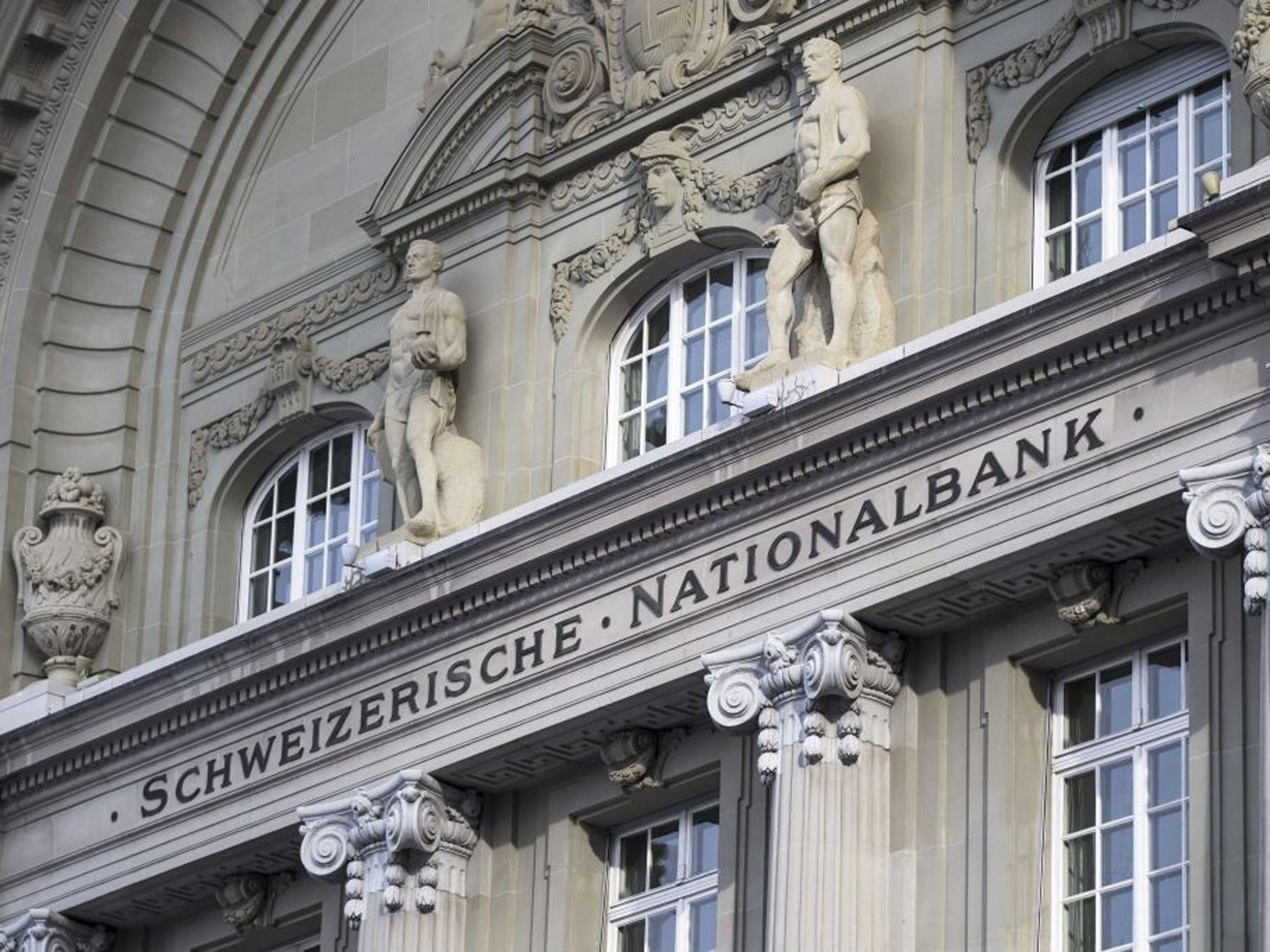Satyajit Das: The Swiss have done for central banking what Ferguson has done for policing
Das Capital

Your support helps us to tell the story
From reproductive rights to climate change to Big Tech, The Independent is on the ground when the story is developing. Whether it's investigating the financials of Elon Musk's pro-Trump PAC or producing our latest documentary, 'The A Word', which shines a light on the American women fighting for reproductive rights, we know how important it is to parse out the facts from the messaging.
At such a critical moment in US history, we need reporters on the ground. Your donation allows us to keep sending journalists to speak to both sides of the story.
The Independent is trusted by Americans across the entire political spectrum. And unlike many other quality news outlets, we choose not to lock Americans out of our reporting and analysis with paywalls. We believe quality journalism should be available to everyone, paid for by those who can afford it.
Your support makes all the difference.The decision of the Swiss National Bank to abandon a fixed value for the Swiss franc against the euro – and its after-effects – foreshadow the potential extreme consequences of the end or failure of central bank activism. For Switzerland, if the currency continues to strengthen and remains overvalued, then the real economy effects will be significant.
A strong franc will affect its competitive position. Swiss exporters will be adversely affected. Tourism will be negatively affected. A stronger franc, especially against the euro, may reduce growth.
This led to the 8 per cent-plus fall in the Swiss stock market after the Swiss National Bank (SNB) abandoned its currency ceiling. The $100bn (£65bn) loss of market value may be exaggerated. Many Swiss firms import commodities which will be cheaper. In addition, many Swiss companies will be unaffected, having relocated manufacturing overseas.
A more serious problem will be externally induced deflationary forces, which will affect the economy through the stronger currency. It will accelerate deflationary pressures, expected to reach as much as negative 2 to 3 per cent. This will create problems for asset prices and the increased levels of debt. But the main ramifications will be abroad.
First, it opens a new front in the currency wars. Following the Swiss decision, the Danish central bank cut interest rates to a record low, from minus 0.05 per cent to minus 0.25 per cent. It was designed to discourage capital inflows and speculation that Denmark would be forced to discontinue its peg to the euro. It also increases speculation on the sustainability of the euro itself.
It will drive competitive reductions in interest rates and currency devaluations as nations seek to preserve competitiveness. The central bank set an interest rate on sight deposit accounts of minus 0.75 per cent, well below the minus 0.25 per cent previously assumed to be the effective lower bound. Other countries may be forced to follow, forcing global interest rates even lower. This may exacerbate asset price bubbles, increasing the risk of future financial system problems.
Second, it draws attention to the ability of central banks to intervene in and control market prices.
Given assurances from the central bank in late 2014 about the continuation of the ceiling, the change in policy reduces trust in central bank forward guidance generally. In the words of one online commentator: “SNB have effectively done for central banking what the Ferguson Police Department have done for community policing.”
Insofar as the SNB’s decision was dictated by concern about the risk of losses from continued expansion of its balance sheet, it highlights the limit to central bank actions.
Central banks can operate without conventional capital, creating reserves and printing money. However, a large loss may affect its credibility. It may also affect market acceptance of the currency. This means that it would require recapitalisation by governments which would draw political attention to the issue. Conservative, orthodox economies will see the actions of the SNB as reinforcing their fears of unconventional strategies as well as their potential costs and risks.
The relative stability of financial markets and recovery in financial assets since 2009 has been reliant on the actions of central banks. This includes forcing additional risk-taking by artificially limiting the availability of and reducing returns on low-risk investments, such as cash or government bonds. As a result, the premium for additional risk has fallen to inadequate levels. This has been predicated on central banks suppressing volatility and implicitly assuring markets that they will act to support prices if necessary.
The SNB decision now casts doubt on the willingness and capacity of central banks to support markets. This may force a major repricing of assets. It will also reveal the deep-seated underlying economic problems, such as slowing growth.
Third, it foreshadows potential volatility if and when central bank activism ends or disappointed markets cease to rely on it.
Markets are edging closer to a crucial moment. Ultra-low interest rates and quantitative easing have been ineffective at restarting growth and inflation. Instead, they have created asset price bubbles and distorted markets. If current policies are discontinued having failed or central banks are forced to change policy because of increasing costs and risk, then major instability across financial markets may result. The events around the franc may be a harbinger of greater volatility. As Gloucester in King Lear says: “These late eclipses of the sun and moon portend no good to us.”
Join our commenting forum
Join thought-provoking conversations, follow other Independent readers and see their replies
Comments